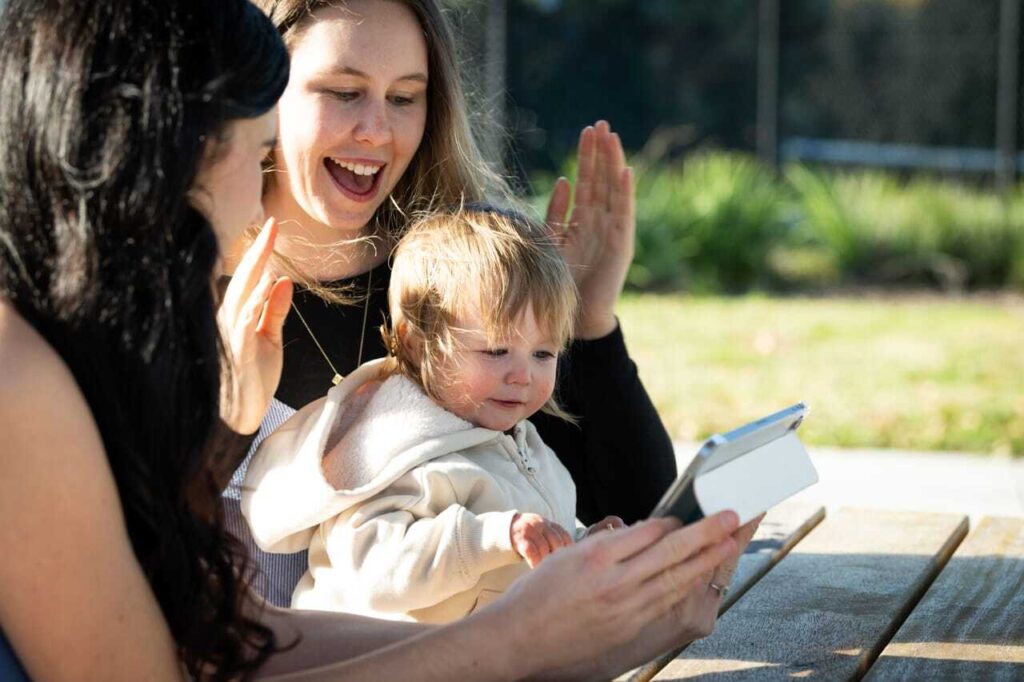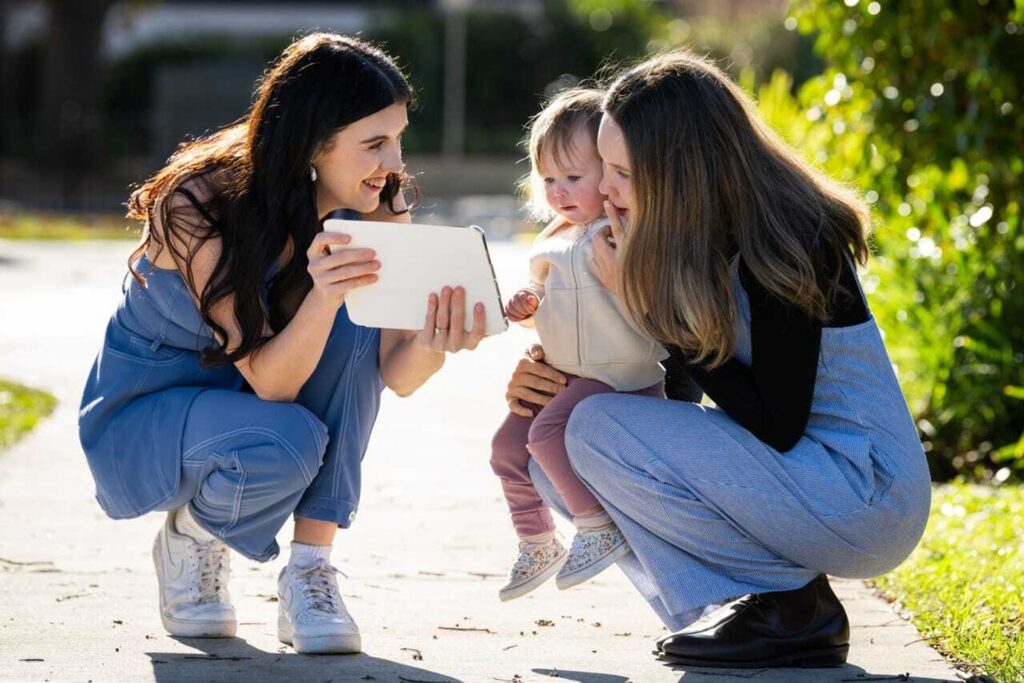Australian families are facing wait times of up to four years for essential speech therapy. Now, an app called ‘Yarn Speech’ is helping to fix the problem.
Founded by Oxford-educated speech pathologist Rebecca Keeley, Yarn Speech is a first-of-its-kind digital solution transforming how Australian families access speech pathology services.
The subscription-based platform offers evidence-based activities designed by qualified speech pathologists for children aged 0 to 3 years. The activities rotate daily in order to help parents guide their children towards first words.
The innovative technology also bridges the critical gap between referral and treatment by providing immediate intervention while awaiting in-person services and ensuring no vital development time is lost.

“Without access to early intervention for communication difficulties, children can enter a cycle of challenges. This delay has severe, long-term consequences for children,” Keeley tells Women’s Agenda.
“Those with communication deficits at five are at significantly higher risk of entering the justice system, have poor mental health and face social isolation,” explains Keeley, adding that this also impacts educational achievements, “with research showing that by Grade 3, children assessed as developmentally vulnerable are a year behind their peers on NAPLAN, and two years behind by Grade 5.”
“We give families a way to support their children at home on the farm, or in the bush, while they wait to get access to face-to-face intervention, helping families feel empowered to support their children’s communication.”
Remote and rural Australia
With the growing waitlists, Australia is seeing increased practitioner burnout, resulting in critical skills shortages in allied health nationwide, according to the Australian Department of Jobs and Skills.
This is especially true in remote and rural Australia, where it is not often cost effective for clinicians to relocate towards.
Roles in these areas have also often had limited career progression over time, which sees experienced clinicians return to the city and waitlist times for speech pathology services continue to grow.
“Therefore families will often drive hours to the nearest town every week in order to access the support their children need, often taking time off work to do so,” Keeley says. “It places a significant burden on the family unit, who are often just doing the best to try and support their kids.”
The Yarn Speech app helps bridge this gap by offering support from home, with technological intervention.

Growing impact
In 2024, Yarn Speech piloted their newly released program to test their impact and product. During the pilot, the app says they saw children say their first words, with several parents providing feedback on the importance of knowing what they needed to do to support their child.
“Knowing that you’re on the right track, doing all the right things, like around mealtimes and bath times, and doing the little things that will help … you feel empowered and are taking the right steps,” said one testimonial.
Another reads: “He’s really coming out with new words every day because of playing the games. He is picking up words … we’re really noticing a lot of development.”
One particular story that the Yarn team remembers fondly is of a family whose child had very few words and was on the waitlist for a local speech pathologist for over a year.
“This child, after playing our games on Yarn, went on to say ‘Grandpa’ when calling his grandparents on FaceTime for the first time, a truly special moment. It’s these stories that motivate us to continue to build and grow,” says Keeley.
As for what’s next, Yarn Speech has plans to continue building the tools that allied health clinicians need to meet the needs of patients across Australia.
“We hope to be a catalyst for systemic change to the way allied health services are provided, by reducing the access barrier to critical early intervention, placing children on a path to long-term success.”


